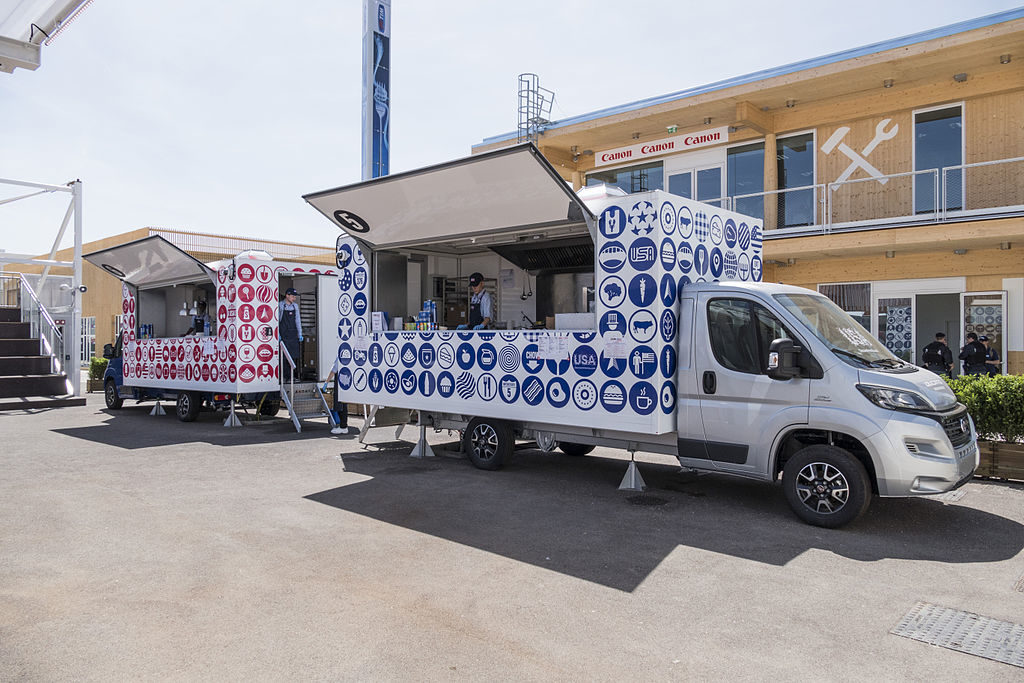During one of my latest visits to Expo2015 in Milano I started wondering why they decided to use food tracks in several locations, first of all in the pavilion of the United States.
In Italy, food trucks (more commonly known as street food) started to be recognised as good food or even gourmet in the last few years. Perhaps the U.S. pavilion’s food truck was an illustration that street food could be quality food, even for Italian standards.
To our knowledge, the first fast-food truck appeared in 1872 in Providence, Rhode Island. The truck was in reality a wagon with cut out windows; its owner was a man named Walter Scott who started to sell sandwiches and pies to local workers.





